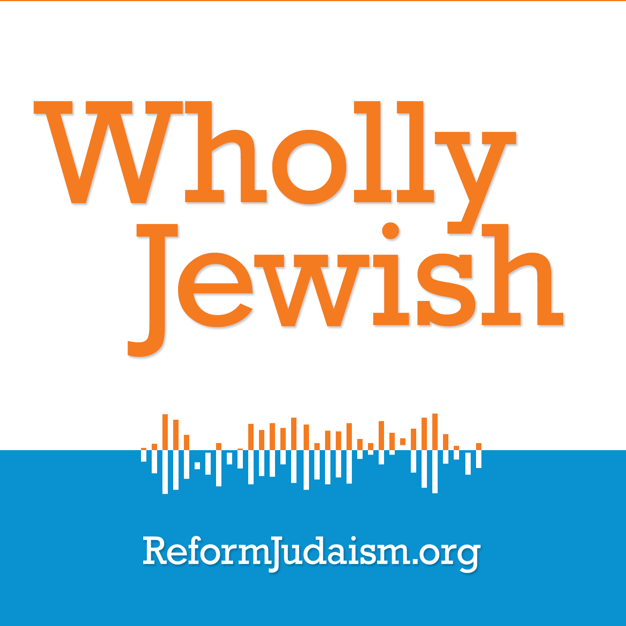
Wholly Jewish
ReformJudaism.org
What do we all have in common? We all live - and balance - complex and nuanced identities, that, when braided together, make us wholly ourselves - and “Wholly Jewish.” Join April Baskin, the Union for Reform Judaism’s former vice president for audacious hospitality, as she speaks with Jews of Color who share their experiences, insights, and how their identities enrich and create a more vibrant Jewish community.
- 20 minutes 48 secondsNoa: The Beauty of Taking Up Space
On the season finale of Wholly Jewish season 2, we are joined by NYU student and college organizer Noa Baron (they/them)! Noa shares the personal and Jewish and significance of their name (and their Jewish name-changing ceremony), the importance of deep listening to the queer community, their aspirations as a trans Jewish leader, and the beauty LGBTQ+ Jews bring to the Jewish community. “I think I’ve been able to shed a real sense of fear…and in this, I’ve been more myself in all the ways that I can be,” Noa says. “I want to tell people like me that there is space for us…in Judaism and in the world and that someone like me who lives in this weird in-between space of gender has…the right to exist and the right to take up space.”
20 October 2020, 9:30 am - 19 minutes 47 secondsDenis: Coming Out and Showing Up
For LGBTQ+ Jews, coming out stories differ from person to person, and the story of Denis Victorovich Kurmanov (he/him) is no exception. This week, Denis shares his experience immigrating from Moldova at a young age, the pressure he faced to present as straight, how Judaism strengthened him to come out as gay and work as at organizer in his Jewish community, and even a few samples of his poetry. “It was a very slow process of [realizing that]…if God is love, then why should I not have it [too]?” Denis says. “It was a slow coming out. But…it was with full vengeance…and there was no going back. I'd done it all. I'm never going back here. I am!” (Recorded fall 2019)
6 October 2020, 9:30 am - 24 minutes 55 secondsDara: From Parliament to the Bimah
Jewish innovation thrives on different perspectives, and it’s so vital that queer Jewish leaders be empowered to share their own. This week, Rabbi Dara Lithwick shares her experience wrestling both with God and coming out as a lesbian. She talks about her work with the Canadian Council for Reform Judaism and the Canadian Parliament, and embracing Torah through a lens of intersectionality. “When you bring different eyes and a different experience…to the study of Torah…it enables our tradition to stay alive and to stay relevant,” says Rabbi Lithwick. “[I bring] all of myself…as a queer woman, as a mom, as a lawyer, as a Canadian…into my read of Torah…And it's a really exciting time…to be a part of all of this.”
15 September 2020, 9:30 am - 21 minutes 45 secondsJ: Breaking Down the Gates of Queer Judaism
Being queer and Jewish means something different to everyone, and those differences deserve to be celebrated. This week, J Collins (they/them) talks about being a Jewish storyteller and teacher; their connection, as a Jew-by-choice, to Rabbi Akiva’s teachings;, repairing the world in an oppressive political climate; and the dangers of “gatekeeping” in queer and Jewish spaces.
“[I]n the transgender community, you're often hit with [the question] of, ‘Am I trans enough?,’…And I've been recognizing some of this in the Jewish community as well: ‘Am I Jewish enough?’” they explain. “[But] whether you call me Jewish or not doesn't matter. I am who I am, and you can't take that away from me.”
1 September 2020, 9:30 am - 20 minutes 17 secondsLaura: Creating Peace Out of Wholeness
With so much turmoil and uncertainty happening around us, finding wholeness – with oneself and one’s community – is especially important. This week’s guest, Cantor Laura Stein, shares her perspectives on how we can best care for those around us, the (lack of) tension between being Jewish and being a lesbian, and how her spiritual leadership inspires her social work at Mount Sinai Hospital's Center for Transgender Medicine and Surgery. “I see…my work with the patients as trying to bring wholeness to their lives,” she says. “And for my patients in particular [to] look in the mirror and see who [they] are in a way that reflects who [they] truly are…spiritual pursuit is about [making] the world more whole. I really see that as beginning with these individuals.”
18 August 2020, 3:00 pm - 21 minutes 37 secondsMax Antman: The Queerness and Politics of Torah
How can we embrace Judaism from not only a queer perspective, but also a “political” one? Max Antman (he/him), a rabbinical student at Hebrew Union College-Jewish Institute of Religion, discusses how being a gay man influences his reading of Torah, how his Reform synagogue empowered his gay identity, and the sacred relationship between activism and studying Jewish text. “Judaism is inherently very intertwined with politics,” he says. “[I want] to push the Jewish community forward and…rally behind these issues of equity, justice, diversity, inclusion…I want to be out and talking to people and integrating them into the Jewish community and pushing for progress in our world.”
11 August 2020, 9:30 am - 24 minutes 31 secondsCaroline: Forming a Sacred Queer Community
Being wholly Jewish means not having to hide parts of who we are when we enter Jewish spaces - including our queer identities. Caroline Dorn (she/her) discusses the importance of such a community; why Jewish congregations must hold intentional communities for marginalized folks; combining her improv skills with her “extracurricular Judaism"; and the importance of expanding our worldviews. "I think that the best resource that the Jewish community has is people," she says. "It's our relationships. It's our connection to one another. It's how we move through the world and the people that we hold close to us while we do it."
21 July 2020, 9:30 am - 24 minutes 51 secondsLeonard: Creating Seats at the Queer Jewish Table
Judaism is in a constant state of reform, and our approach to LGBTQ+ inclusivity should be, too. Leonard Slutsky (he/him), a Union for Reform Judaism lay leader and college admissions counselor, shares his experiences as a gay cisgender Jewish man; how Reform Jewish spaces affirmed his gay identity; how Judaism inspires his work as a suicide hotline volunteer; and how our communities can better serve queer Jews of all backgrounds. “I feel that it’s my role as someone who has a great deal of privilege, especially within the queer community,” he says, “to use it and help support those who don’t have as much as a voice.”
7 July 2020, 9:30 am - 22 minutes 22 secondsMo: Standing in the Closet Doorway
Being queer means something different to everyone who identifies this way. Mo Selkirk (she/her), a queer Jewish mother, spouse, and activist, to name a few, discusses how her grandparents inspired her to embrace Judaism, what it means to be in a queer family, and how presenting as straight has been a blessing and a curse. “My [queer] invisibility is my personal superpower,” she says, “because people will say things to me [when] they don’t know who they’re talking to, and…I have the have the opportunity to educate them.”
16 June 2020, 9:30 am - 3 minutes 31 secondsThe Secret to Eliana's Fabulous Hair
During Shira’s conversation with Eliana Rubin (check out our June 2nd episode, if you missed it), many topics came up – including Eliana’s beautiful, curly hair! In case you couldn’t get enough from episode one, check out this bonus episode all about how she creates those perfect curls.
12 June 2020, 9:30 am - 21 minutes 28 secondsEliana: Gender Diversity is So Jewish
On the premiere episode of Wholly Jewish: Season 2, we hear from Eliana Rubin (she/her). Eliana (who went by Elias at the time of this episode’s recording) talks about when she first connected with her nonbinary transfemme identity and her desire to create more queer-inclusive classrooms. "I find that identifying as a Reform Jew and a queer person...are two parts of me that are so integral now to my core identity," she says.
9 June 2020, 9:30 am - More Episodes? Get the App
Your feedback is valuable to us. Should you encounter any bugs, glitches, lack of functionality or other problems, please email us on [email protected] or join Moon.FM Telegram Group where you can talk directly to the dev team who are happy to answer any queries.
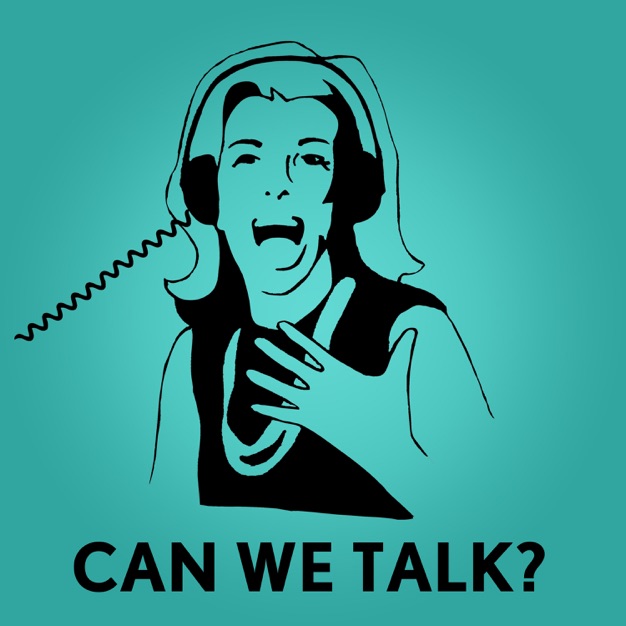 Can We Talk?
Can We Talk?
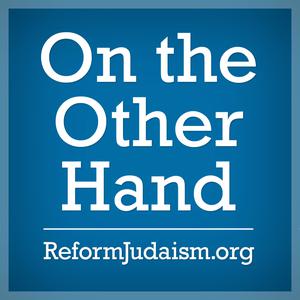 On the Other Hand: Ten Minutes of Torah
On the Other Hand: Ten Minutes of Torah
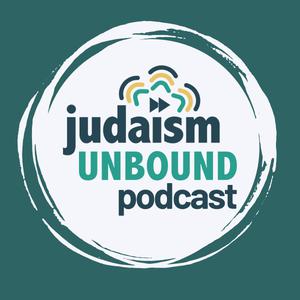 Judaism Unbound
Judaism Unbound
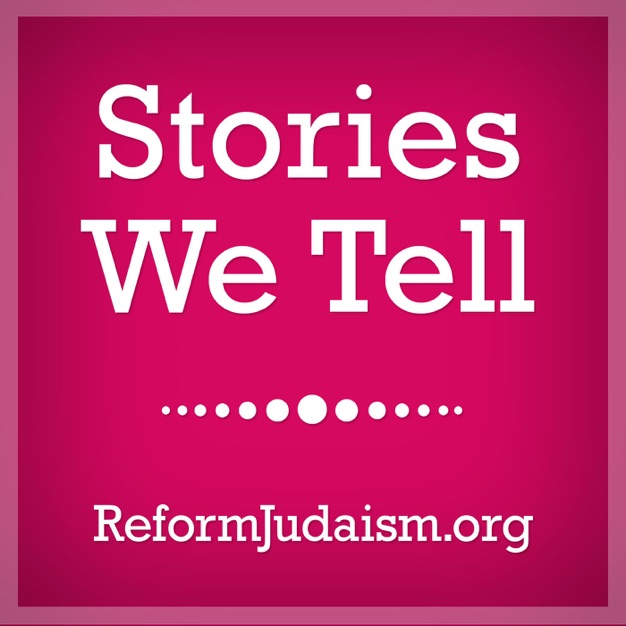 Stories We Tell
Stories We Tell
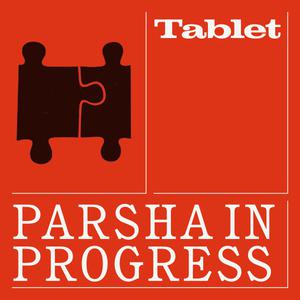 Parsha in Progress
Parsha in Progress
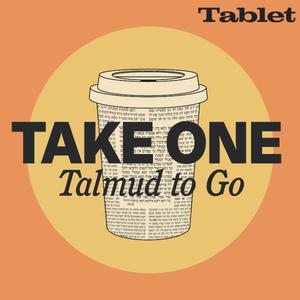 Take One Daf Yomi
Take One Daf Yomi